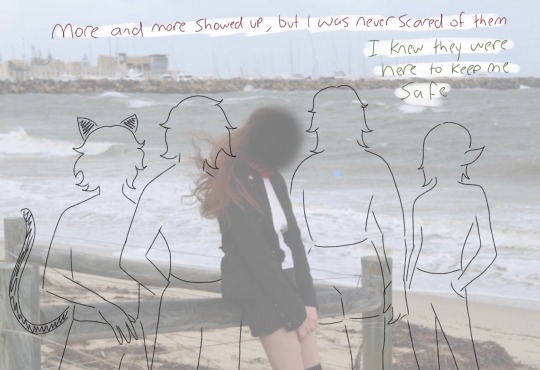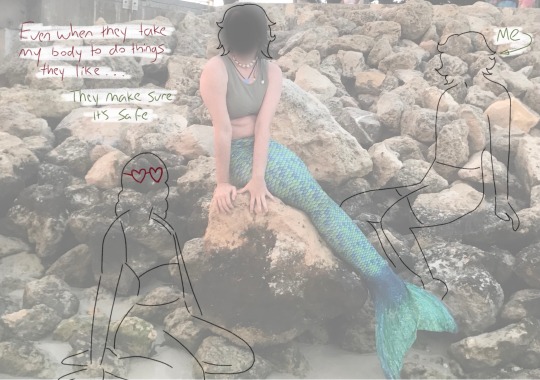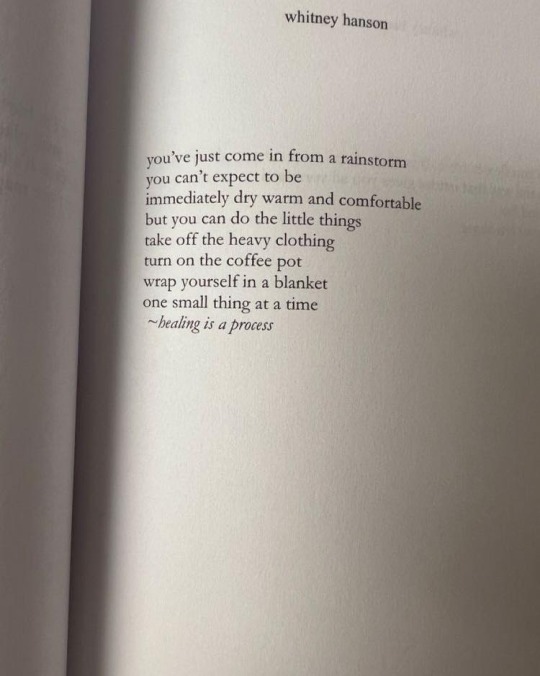#healing is a process
Explore tagged Tumblr posts
Text

410 notes
·
View notes
Text

Don’t lose hope. 🐢
#positivelypresent#healing is hard#healing is a process#healing is possible#healing quotes#heal yourself#healing is not linear#self love#don’t lose hope
367 notes
·
View notes
Text
Plurality isn’t always scary
Made with childhood pictures taken when we were co conscious.





Even if the world will never be normal about plurality, that doesn’t mean you can’t learn to work with it and achieve functionality. Even though I don’t think we’ll ever be fully functional, we’re at a point where most days are calm and everyone gets along. Sure, I can’t remember three whole years of my life. Sure, I can’t control who switches and when. But we communicate well enough to trust each other no matter what happens.
No, plurality isn’t always easy. But I’d not trade the system for the world.
Happiness with your system is possible.
#plural art#system art#system comic#plural comic#just plural things#plural shit#plural artist#plural#just system things#system stuff#plural system#sysblr#multiplicity#multiple system#healing is a process#healing#recovery#art#digital artwork#artists on tumblr#digital art#trauma art#trauma recovery
359 notes
·
View notes
Text
this informational piece is directed to the gale fandom specifically:
grooming is a tactic where someone methodically builds a trusting relationship with a child or young adult, their family, and community to manipulate, coerce, or force the child or young adult to engage in sexual activities.
1. Choosing a victim - The predator often chooses a child who is obviously vulnerable. Children who are withdrawn, low on confidence, emotionally deprived and with less parental supervision are particularly at risk.
2. Building access & trust - Sexual abuse often begins with friendship. The abuser can also take on other roles such as a romantic partner, a mentor, a caregiver or an authority figure. The abuser spends time in getting to know the victim's likes, dislikes and habits and pretending to share common interests. The perpetrator establishes trust with the child by making them feel special, sometimes through gifts or excessive compliments and attention. This is especially dangerous for vulnerable children who do not experience attention in their daily lives. In the trust development stage, offenders aim to develop a trusting friendship or relationship with their victim. This can involve several tactics, including:
a) praising the child for their maturity and intelligence;
b) encouraging the child to disclose personal information;
c) syncing their language with that of the child;
d) highlighting mutuality (i.e., similar interests, attitudes and behaviors between the offender and child); and finally,
e) portraying themselves as being trustworthy and nice.
3. Filling a need with gifts & favors - Giving the victim small gifts and favours is a strategy used by perpetrators to make the child feel indebted. Trust is further built by sharing intimate life details, going on special outings and giving the child access to things they normally wouldn’t get. Once the offender has identified a child’s needs, they will try to be the “hero” to the child who gives them what they desire. Examples include gifts, extra attention, or affection. This causes the child to see them as highly important and even idolized. They won’t want to upset them in risk of not getting the void in their life fulfilled.
4. Isolating - The groomer actively tries to isolate the child from people who may be watchful or helpful. This kind of isolation creates deeper connection & dependency. The offender also exhibits exemplary behaviour before parents of the victim & manipulates them into trusting the relationship. They will use this trust to create situations in which they are alone with the child. Time spent alone also reinforces the “special connection” the child feels they have with the offender. This “special connection” is further reinforced when the offender convinces the child that they love and appreciate them more than anyone else.
5. Initiating sexual contact - With the power over the child victim established through emotional connection coercion or one of the other tactics, the perpetrator may eventually initiate physical contact with the victim. It may begin with touching that is not overtly sexual (though a predator may find it sexually gratifying) and that may appear to be casual (arm around the shoulder, pat on the knee, etc.). Gradually, the perpetrator may introduce more sexualized touching. By breaking down inhibitions and desensitizing the child, the perpetrator can begin overtly touching the child. At this stage, the offender will exploit a child’s natural curiosity through physical touch and excitement. They will begin to teach the child sexual preferences and manipulate what the child responds to. The child begins to see themselves as a sexual being prematurely and the relationship with the offender now takes on a sexual term.
6. Post-abuse maintenance - The goal of the final stage is to ensure the child remains trapped in the cycle of abuse and loyal to the abuser, by either reinforcing and maintaining trust in order to prevent disclosure, or by explicitly threatening or blackmailing the child or their loved ones. This can also be reinforced and maintained by, for instance, giving the child affection, praise or encouragement for one’s actions.
#grooming cw#abuse cw#sa cw#we have reached a point where i feel like it really needs to be explained#once again#some people still seem to think that gale’s lack of realization means that he wasn’t actually groomed#while he simply hasn’t reached that stage yet during the game#healing is a process#he barely scratched the surface of everything mystra had done to him#namely 1) that mystra was wrong to request him to kill himself#and 2) that he was used as amusement and eventually discarded#perspectives he only gained through tav & the tadpole gang’s input#when elminster arrives he still fully believes that his sacrifice is the only logical choice#it speaks#gale dekarios
210 notes
·
View notes
Text
15 notes
·
View notes
Text
you think you're over it and then out of the blue you're curled up on your bathroom floor listing five things you can see four things you can touch three things you can hear.
#text post#textpost#shitpost#tumblr#humour#relatable#humor#lmao#funny#random thought#social anxiety memes#anxiety memes#panic attack#mental illness#mentally unstable#healing#healing is not linear#healing is a process
150 notes
·
View notes
Text

#healingjourney#self healing#healing my heart#little things#self love#love#i love me#love yourself#home#one thing at a time#healing is a process#process#healing#heal me#health#love myself#loving myself
195 notes
·
View notes
Text
it’s okay to be angry at the injustice of somebody hurting you.
#female writers#women writers#female poets#women poets#spilled ink#the tortured poets department#healing#healing from abuse#healing is a process#healing is not linear#healing is hard#healing is a journey#healing is weird#healing is possible#narcissistic abuse#escaping abuse#abuse survivor#abuse recovery#fuck abusers#narcissisticabuserecovery#hurtquotes#healing affirmations#healing and growth#healing from trauma#healing girl era#healing journey#healing not healed#healing process#healing reminders#healing quotes
24 notes
·
View notes
Text
When you’ve been the family caretaker soooo long, you don’t know how to “be your own person”. So long your identity was in others. Not everyone understands how lost you are. How easily you hide yourself in one-sided relationships with toxic people because you don’t have to find yourself. You just focus on the other person.
I found myself marrying a really nice guy which is GREAT accept idk who I am and for the first time, I don’t wanna be “him.” I don’t wanna be like him… I wanna be my own. I know what hobbies I have…. That’s not a “true identity” though.
#finding yourself#my story#unpacking#emotional abuse#self awareness#healing journal#heartbreak#emotional wounds#family caretaker#shadow work#healing inner child#healing is a process#healing is hard#healing wouds#healing words#healing work#toxic relationship#toxic people#toxic love#people pleaser#control issues#trust issues#betrayal trauma#letting go is hard#learn to love yourself#learn to love again#therapy session#Dear ex#lost in you#lost
9 notes
·
View notes
Text
Well the biggest thing that I let go when my world fell apart is now down to only 3 pages from the 8 pages of errors it got to. That pretty much equates to getting 89 excel rows from 487 rows it was at its height. I’m super stoked I’m getting to this point.
Gonna try to shave even more off. I really think once I can get this account back to nearly $0 a huge emotional weight will be lifted.
#finding my way back to high performing#heartbreak is a hell of a thing#healing is a process#we’re getting there
3 notes
·
View notes
Text

...both&...
#fionamccoss#pinterest finds#both and#both&#simple & complicated#duality#it's all one#healing is a process#spilled ink#spilled thoughts#spilled truths#quotes#keep going
199 notes
·
View notes
Text

Feel it to heal it!
#feel your feelings#how are we feeling#feel it#healing is a journey#healing is a process#feelings#positivelypresent#self care
322 notes
·
View notes
Text
here's your gentle reminder that healing isn't linear and processing your feelings about something heavy is not linear and doesn't have to be
#healing#healing is a process#healing isnt linear#mental health#its okay to not be okay#its okay to take your time to process
7 notes
·
View notes
Text
Got my nails done, got a job interview, Im surrounded by good people... yeah cutting those people out of my life hurt, moving on from that part of my life hurt, growing hurt ((and I still have more to do)) but at least now I know i can do it all on my own. If no one else I have myself and that is good enough. So fuck it. I got it. I got me.
#remember you have yourself#self love#self compassion#healing#healing isnt linear#healing is a process#healing is a journey#you can do this#i believe in you#believe in yourself#🪓
3 notes
·
View notes
Text
Yesterday was easier. Today, yet again, feels heavy. I have to constantly remind myself that I'm not a failure; healing just isn't linear and that's okay. It comes and goes in waves, but that doesn't mean it will stay like this forever. It's hard to think it will be okay, but as clichè as it sounds: it will be okay, as long as you do not give up on yourself.
Be kind to your mind. Always.
- Reni
#mental health#panic disorder#anxiety disorder#be kind to yourself#everything will be okay#generalized anxiety disorder#just breathe#living with panic#healing#healing is not linear#healing is a process#it will be okay#waves#it comes and goes in waves#be patient with yourself#you will be okay#healing journey#healing journal
8 notes
·
View notes
Text


I’m really starting to step into my style…and it’s so nice finally being the me I’ve always seen and never could attain 💖
#loving me harder#black lesbian#healing is a process#stepping into the real me#black culture#softtopxpressions#blktumblr#black girls of tumblr#blkgirldaily#softest life#black girls frolic#blackgirlmagic#self care#self healing#be gentle with yourself
26 notes
·
View notes